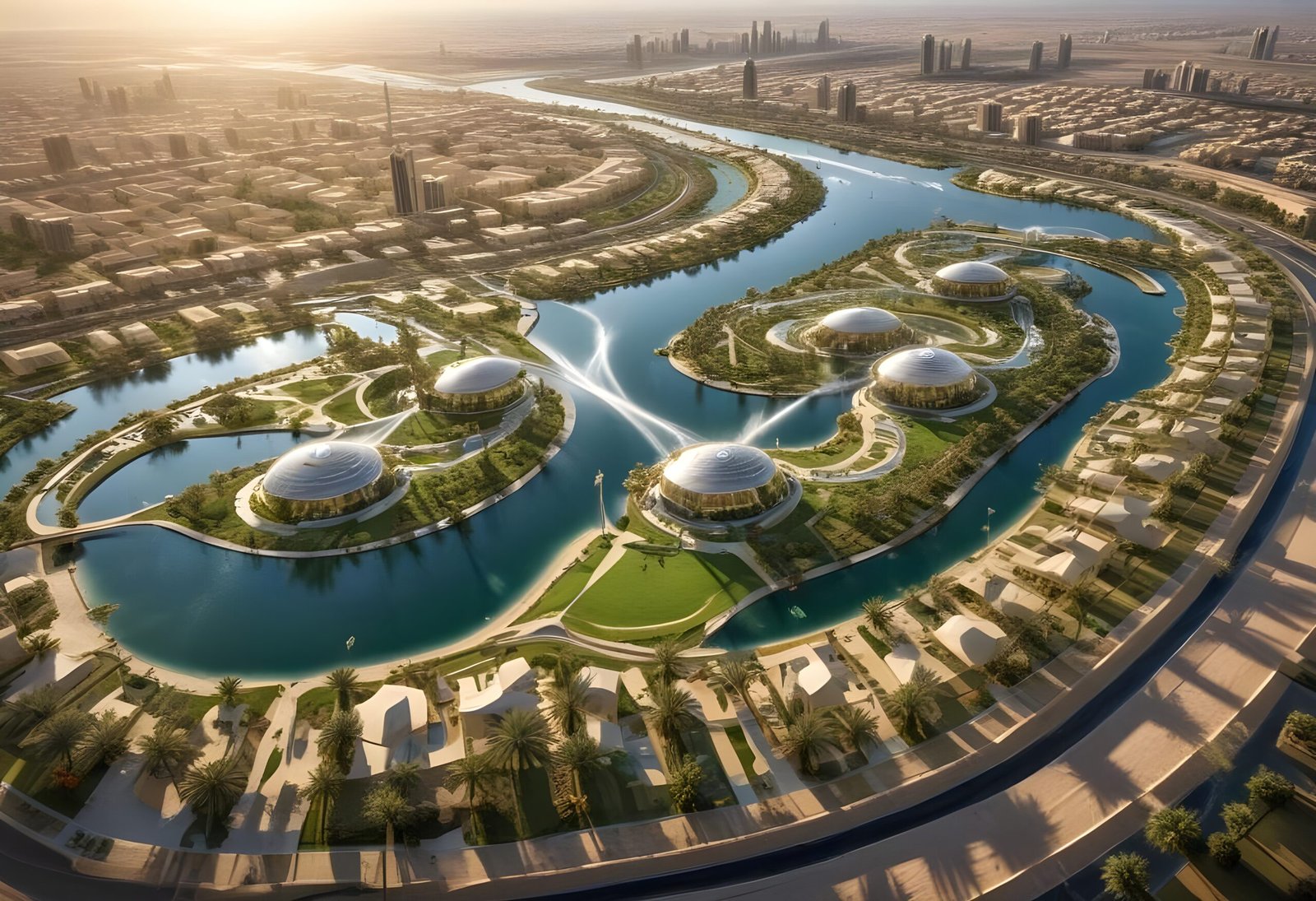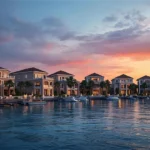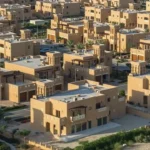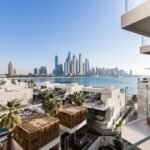Now Reading: Solar Energy in UAE Homes Drives Green Development
-
01
Solar Energy in UAE Homes Drives Green Development
Solar Energy in UAE Homes Drives Green Development
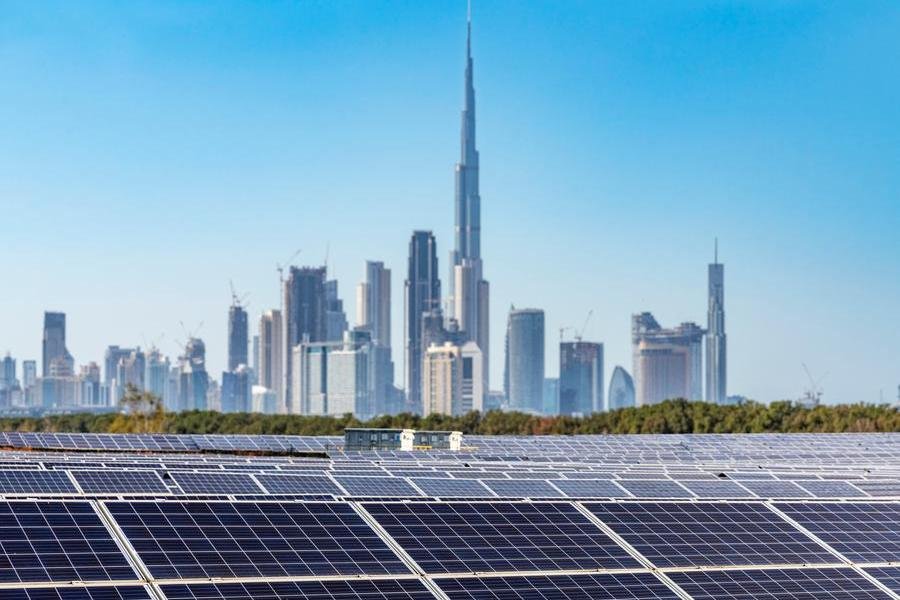
The integration of solar energy in UAE homes and large-scale developments is transforming the nation’s real estate sector. As the UAE positions itself as a global leader in renewable energy, solar-powered homes, communities, and mixed-use projects are becoming key features of sustainable living. This shift is not just about saving on utility bills-it represents a nationwide commitment to innovation, environmental responsibility, and future-ready urban growth.
Why Solar Energy Matters in the UAE
The UAE is uniquely suited to solar power because of its abundant sunshine, averaging more than 300 sunny days per year. With rising concerns over climate change, high energy consumption rates, and the government’s Net Zero 2050 initiative, solar power has become a natural solution for the country’s long-term sustainability goals.
Key drivers include:
- Abundant Sunshine: Ideal conditions for solar generation.
- Government Policies: Initiatives like the Shams Dubai program promote solar adoption.
- Rising Energy Demand: Growing populations and industries require alternative energy.
- Cost Savings: Solar panels reduce reliance on traditional electricity.
- Global Leadership: Showcasing the UAE’s role as a pioneer in green development.
Government Initiatives Supporting Solar
The UAE government has played a major role in accelerating solar adoption. Some of the most notable initiatives include:
- Shams Dubai: Allows homeowners to install solar panels and connect them to the grid, reducing bills and earning credits for excess energy produced.
- Net Zero by 2050: The country’s national drive to eliminate carbon emissions by mid-century.
- Masdar City in Abu Dhabi: A pioneering sustainable urban development powered by renewable energy.
- Mohammed bin Rashid Al Maktoum Solar Park: The world’s largest single-site solar park, showing the country’s scale of ambition.
These policies and projects create a favorable ecosystem for homeowners and developers to embrace solar solutions.
Solar in Residential Developments
Solar energy is no longer limited to experimental projectsp-it is now part of mainstream residential real estate in the UAE.
- Villas and Townhouses: Increasingly equipped with rooftop solar panels.
- Master-Planned Communities: Developments like The Sustainable City in Dubai rely heavily on solar energy.
- Apartments: Developers are introducing solar-powered communal areas and building-wide systems.
The result is not only lower energy costs for residents but also higher property values, as sustainability features attract environmentally conscious buyers and tenants.
Impact on Large-Scale Real Estate Projects
Solar integration is especially significant in mixed-use and commercial developments. Developers see renewable energy as a selling point, appealing to both investors and residents who value eco-friendly living.
For example:
- The Sustainable City, Dubai: Uses solar panels across rooftops and carparks to power homes and facilities.
- Masdar City, Abu Dhabi: A global model for green urban design powered by renewables.
- Expo City Dubai: Built on sustainable principles, integrating renewable energy sources.
These developments showcase how solar is not only a green solution but also an economic advantage in attracting global interest.
Benefits of Solar Energy for UAE Homes
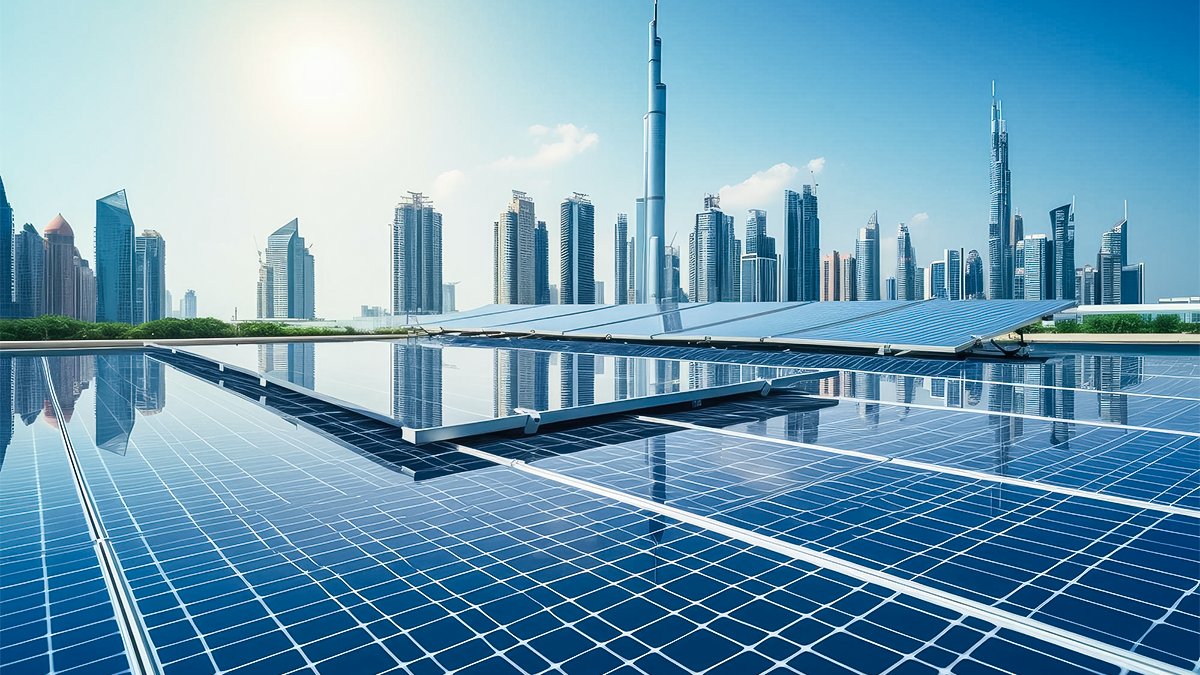
- Lower Utility Bills: Reduced reliance on electricity from the grid.
- Sustainability: Contributes to the UAE’s carbon reduction goals.
- Resilience: Provides backup energy during peak demand periods.
- Increased Property Value: Homes with solar panels command higher resale prices.
- Attractiveness to Tenants: Eco-conscious renters prefer sustainable living options.
Challenges of Solar Integration
While progress is strong, there are challenges to wider adoption:
- High Upfront Costs: Installation of solar panels requires initial investment.
- Maintenance Needs: Panels need regular cleaning in desert climates due to dust accumulation.
- Technical Expertise: Requires skilled professionals for design, installation, and upkeep.
- Awareness: Some homeowners remain unfamiliar with the financial benefits.
Despite these hurdles, falling costs of solar technology and government incentives are making adoption easier and more attractive.
Future of Solar Energy in UAE Homes and Developments
The outlook for solar energy in UAE real estate is extremely positive. Key trends shaping the future include:
- Smart Homes Integration: Linking solar panels with AI-powered energy management systems.
- Community Solar Projects: Shared solar systems for neighborhoods and apartment blocks.
- Green Financing: Banks offering favorable mortgages for sustainable homes.
- Innovation in Solar Tech: Building-integrated photovoltaics (BIPV) where windows and facades generate power.
- Net Zero Cities: Entire districts designed to operate on renewable energy.
With its ambitious clean energy goals and commitment to sustainability, the UAE is set to be a global leader in solar-powered real estate.
Conclusion
The integration of solar energy in UAE homes and developments marks a significant step toward sustainable urban living. It is reshaping the real estate market by reducing costs, increasing property values, and positioning the UAE as a pioneer in renewable energy adoption.
As solar technology becomes more accessible and government initiatives continue to expand, more homes, communities, and large-scale projects will embrace solar integration. For homeowners, investors, and developers alike, this trend represents not just an environmental commitment but also a smart financial choice.
Follow us on: Instagram
Read More : DIFC Real Estate: Evolution of Dubai’s Financial Hub



